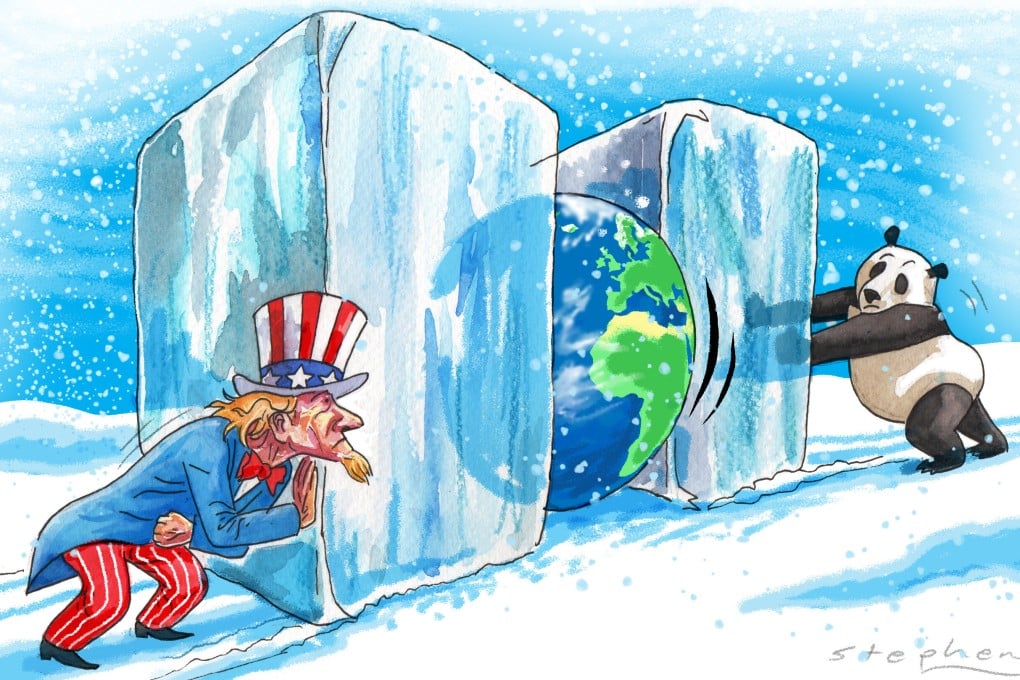Advertisement
Opinion | Why US and China’s push to set up rival power blocs are likely to fail
- China’s biggest ally Russia has concerns about Beijing’s influence in its backyard while US allies in the Asia-Pacific favour neutrality and maintaining Chinese ties
- Meanwhile, the middle powers from Japan and India to Australia and the EU have every incentive to prevent a ‘digital iron curtain’ and outright war
Reading Time:4 minutes
Why you can trust SCMP
3

“Gradually, then suddenly,” said one of Ernest Hemingway’s characters when asked how one goes bankrupt. A similar dynamic has taken hold of the decades-old Sino-American detente, which transformed global politics for the past half-century but is now on the ropes.
Instead of converging on shared interests, the United States and China are rapidly nurturing rival power blocs, creating a perilous situation that eerily resembles the heyday of the Cold War.
The Biden administration is doubling down on its transatlantic alliances and strategic partnerships across the Indo-Pacific, while China builds up strategic ties with major anti-Western powers across the Eurasian land mass, most especially Russia, but also with traditional US partners such as Turkey and Saudi Arabia.
Advertisement
Yet, amid a raging pandemic that is devastating the global economy and driving millions into extreme poverty, the last thing the world needs is a new cold war.
The Sino-American detente dates back to to the 1970s when, in arguably the greatest strategic coup of the 20th century, president Richard Nixon orchestrated a rapprochement with the “Great Helmsman” Mao Zedong to forge a common front against the Soviet Union.
Advertisement
Advertisement
Select Voice
Select Speed
1.00x

